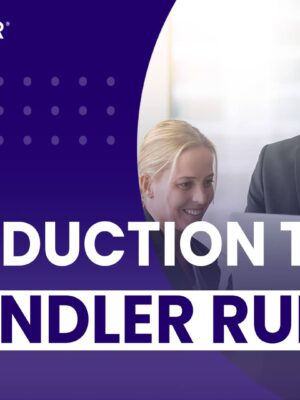Leading in Uncertain Times: A Sales Mastery Analysis

With the last quarter well underway, every organization is prioritizing revenue operations, especially with recent economic impacts. But is this short-sightedness stunting your overall success in revenue generation?
In the latest Sales Mastery study published by Sandler, researchers Barry Trailer and Jim Dickie uncover insights into sales performance across hundreds of organizations. Their findings reveal themes around turnover, coaching, lead comprehension, and technological adaptability, asking:
How do sales leaders prevent turnover of their winning salespeople? How does coaching impact loyalty and performance? When and how do sales professionals target leads? And finally, how is any organization expected to keep up with the rapid evolution of technology?
Each of these questions reveal opportunities and strategies to combat industry wide challenges lying at the nexus of revenue performance, and yet their solution is essentially the same: sales performance training.
Sales training consistently addresses the gap in revenue operations, however, it is revealed as one of the most neglected aspects of business performance. The Sales Mastery assessment of sales training programs found that fewer than 19% of organizations provide adequate training for sales technology, and only 18% prepared their salespeople with process training and methodology.
As sales leaders and organizations abandon training, the gap widens.
This is exacerbated by turnover, which reached over 10% according to Sales Mastery – far higher than averages seen in previous years. With recent and looming economic headwinds, many organizations will lose the resources to fill open positions. Additionally, it takes up to a reported nine months to onboard new sales talent before they reach full productivity. Given all of this, reducing turnover should be paramount to any sales organization.
Looking back at the sales training assessment, Trailer and Dickie observe this exact thing, linking neglect in training to increased turnover. So, if not training, the question becomes then: what, how, and to whom is the budget allocated?
The connection between coaching and training expands upon this question, defining coaching as sustained, one-on-one training of the most important sales processes (i.e.: prospecting, positioning, and closing).
Trailer and Dickie’s findings show that 68% of respondents reported an informal or Ad hoc approach to coaching, with only 32% reporting a formal approach to coaching – one which is timely, objective, accurate, relevant, and individualized.
Again, the consistency and adequacy of training is critical to the success of sales staff meeting or exceeding their quotas, and their research shows that formal coaching approaches have a definitive positive impact.
The final numbers speak for themselves: organizations which invested in a training process to focus on ongoing training and formal coaching achieved the highest revenue attainment (100%), lowest competitive loss (19%), and highest percentage of reps meeting or exceeding quota (73%).
This data contradicts the hypothesis that lead generation lies at the root of revenue generation. Only 11% of responding organizations reported their marketing team exceeded expectations on lead quality and quantity, far lower than the benefits reported for training and coaching. In the ongoing discussion of quality and qualified, organizations which reported a shared understanding
of buying process and sales methodology saw conversion rates of 51%, versus 27% in those that did not.
The sales teams which properly tracked their buyers throughout the sales cycle and adapted their behaviors, accordingly, saw lead conversion rates increase by 23%, and 67% of those salespeople who were trained to consistently up-sell and cross-sell achieved 100% of their revenue attainment plan.
The evidence shows that a comprehensive training program which includes up-front training and on-going coaching for sales staff leads to stronger company loyalty, lower turnover, and higher achievement. With only a few months remaining in 2022, there is no time like the present to engage in a comprehensive training and coaching program for your sales staff and sales leadership team.
Best phrased by Trailer and Dickie: “If training is something you do [once], and then hope sellers retain some element of it, you’ve already wasted your money.”
For access to the full Sales Mastery Report, click here.








